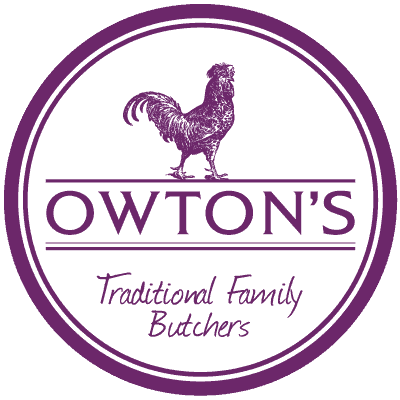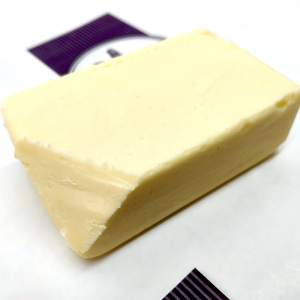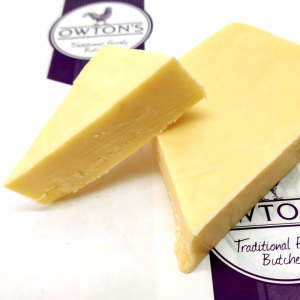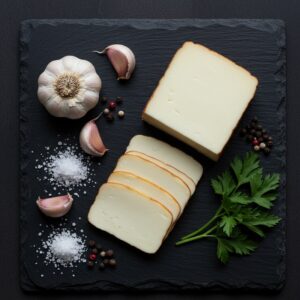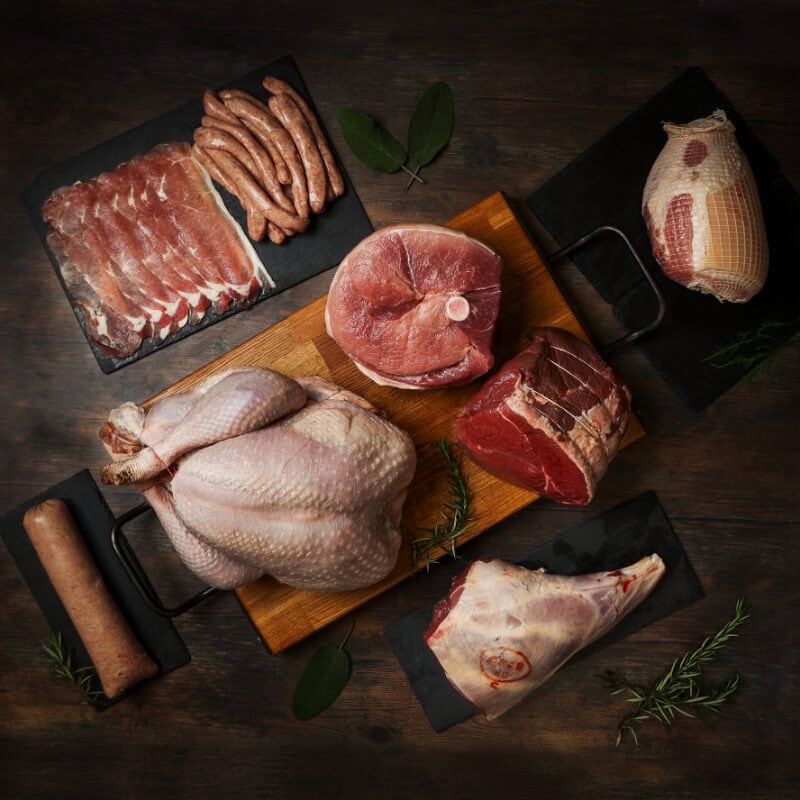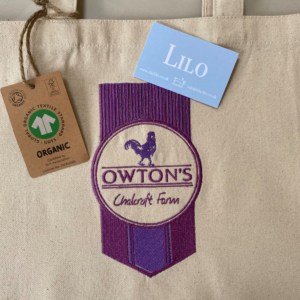Cheese, Eggs & Dairy
With a wide selection of artisanal cheeses, free-range eggs and a variety of dairy delights, you can easily stock up on these essential items from the comfort of your home without any hassle. Whether you’re looking for an extra mature cheddar from Snowdonia, halloumi or free-range eggs, Owton’s ensures freshness and quality with every order, delivered straight to your door. If you’re just a couple of pounds short of our delivery limits, why not add a creamy butter to your cart?
What Our Customers Think

Stock Up on Cheese, Butter and Eggs
Stocking up on essentials has never been easier with Owton’s range of cheese, eggs and dairy products. Choose from butter, extra mature cheddar, free-range eggs, and halloumi – all carefully sourced for quality and freshness. Perfect for cooking, baking or snacking, explore our selection online and stock up on your kitchen staples!
Owton’s delivers across England, Scotland and Wales, using our own refrigerated vans for local areas and DPD for nationwide orders. With next-day delivery available (subject to availability) and chilled packaging as standard, there’s never been a better time to order online.
See Related Dairy Products
33 Exclusive Hot Deals
Click Here To View The DealsFrequently Asked Questions
Below, you’ll find cooking advice and recommendations on various cheese, eggs and dairy products. For information about ordering, delivery and more about our products, please see our dedicated FAQs page.
No, eggs are not dairy. While they’re often stored in the same section as milk, cheese, and butter, eggs come from birds and contain no milk or milk-based ingredients. Dairy products are made from mammalian milk—such as cow’s or goat’s milk—whereas eggs are classified as animal protein, similar to meat or poultry.
Hard cheeses, like cheddar or parmesan, are aged for longer periods and have a lower moisture content, which gives them a firmer texture and deeper flavour. Soft cheeses, such as brie or camembert, retain more moisture and often have a creamy, spreadable consistency with a shorter shelf life. The ageing process, moisture level, and bacteria cultures used are key factors in defining texture and taste. Each type suits different recipes and preferences.
Once opened, cheese should be wrapped in wax paper or baking parchment, then loosely covered in foil or placed in an airtight container. This allows it to breathe while protecting it from drying out or absorbing fridge odours. Store it in the fridge’s vegetable drawer or a dedicated cheese box where temperatures are more stable. Avoid using cling film directly on the cheese, especially with soft or aged varieties.
Yes, many cheeses can be frozen, although the texture may change slightly after thawing. Hard cheeses like cheddar or grated mozzarella freeze best and can be used in cooking after defrosting. Soft cheeses are more likely to become crumbly or lose creaminess, but they’re still fine for cooked dishes like sauces or quiches. Wrap portions tightly in foil or freezer bags and use within 2–3 months.
A good cheeseboard includes a mix of textures and flavours—for example, a hard cheese like mature cheddar, a soft cheese like brie or camembert, and a blue cheese such as stilton. You might also add a goat’s cheese or a smoked variety for variety. Pair them with fresh fruit, chutneys, crackers, and nuts to balance richness with sweetness and crunch. Room temperature brings out the best flavour and texture, so let cheeses sit out for 30–60 minutes before serving.
